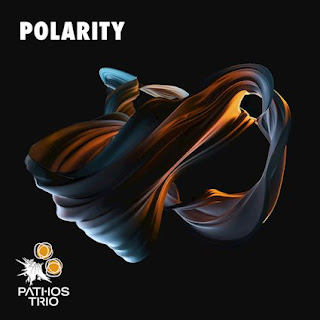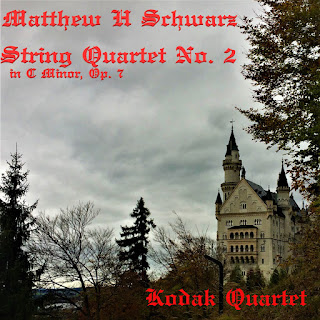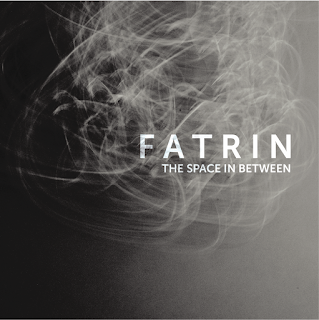Pathos Trio - "Polarity" album review
Pathos Trio - Polarity album review
Polarity is such a highly polished example of how rewarding it can be to merge contemporary classical music with electronica.
Released September 15th on the Imaginary Animals label, Polarity wedges itself in a specific niche between contemporary classical music and electronica. The collaborative album combines the performance capabilities of Pathos Trio with six composers, all of whom have written pieces specifically for the trio, and Four/Ten Media, which is creating accompanying music videos for each track. With the only unifying feature being the implementation of electronics, it is quite impressive how the six new works form such a cohesive collection.
Pathos Trio, made up of two percussionists and a pianist, completely reimagines the idiom of the chamber ensemble, embracing the possibilities of electronic integration within live performance. For many non-classical audiences, these instruments and setup may already be commonplace, enabling Pathos to successfully appeal to a wide audience. Felix Reyes, percussion and drumset, holds down the ensemble for the entire album, performing as the epitome of a contemporary classical set player; Marcelina Suchocka, percussion, navigates beautiful minimalist vibraphone lines and multi-percussion setups with ease; and Will Healy, pianist and composer, who balances multiple keyboards. All three performers having such a high level of respect for classical and non-classical idioms enables Polarity to be such a highly polished example of how rewarding it can be to merge contemporary classical music with electronica and other styles of heavy pop/rock music.
Ian Chang's Mega Cicada opens the album with fluttering low rumbles. Known for his latest album of instrumental pop songs, Chang's authentic musical experience meshes well with the trio's concept for the album. Ironically, the name is sourced from how the opening bass samples were created and perceived, but these giant cicada basses are almost completely forgotten and fall into the background as Chang's singular rhythmic motive begs for attention. His use of percussion and electronics is engaging, but the blandness of a single piano note repeating over and over becomes tedious too quickly. Split, by Phong Tran, is one of the more successful works on the album, especially in terms of functioning as a stand alone piece. While the programmatic nature of an internal struggle comes across a little too literal and kitschy at times, the musical material and formal construction presents the listener with an engaging aural plot. His constant recontextualizing of melodic synth material with slight hiccups or shifts of polymeter in the drums are perceived as both complex and entertaining.
The lo-fi introduction to Andrew M. Rodriguez's Pity creates a refreshing air of reminiscence, strongly aligning with the work's interest in memory. Rodriguez's music is highly refined in terms of composition, orchestration, and specific production involving the electronic media. His isolated piano lines function as a natural relief to the intense beating rhythms heard early on in the piece and dreamily float in slow motion alongside the ensemble due to Rodriguez's choice in register. While one of the shorter works on the album, Pity showcases the beauty which can come out of the Pathos trio's instrumentation. In direct opposition, Monolitos, by Chilean composer Vicente Hansen Atria, is strict and harsh, literally defined in terms he associates with monolithic structures. Wild, screaming synth solos and repetitive hammered piano chords are suddenly contrasted with bite-sized chunks of the traditional sounds of a jazz combo. While intriguing the first few times, Atria comes to rely on drastic and abrupt style changes to create musical interest.
21600 presents itself more aligned with current traditional trends in contemporary classical music. Composed by Paul Mortilla, a current PhD student at Rice, 21600 explores the essential act of breathing, specifically through the Westernized lens of Tibetan meditation. Mortilla's music is permeated with seemingly meaningless and randomly placed jazz/pop licks, extended drones, and hocketed almglocken, all of which combine together resulting in a sense of unease and awkwardness, which could be perceived as opposing to Mortilla's compositional goal. Polarity comes to a close with Clara Warnaar's fun and groovy Home/Gone. The largely monothematic work takes a short, catchy motive and finds ways to constantly reiterate it without losing steam. In addition to the recording, Vic Firth has released a performance video, also by Four/Ten Media, here. Warnaar's music culminates in complete destruction of the theme, layering it so many times it becomes nearly unintelligible, but does so in such a fun manner, truly finding joy after losing what is gone. The firework explosion of harmonious sound releases into a final melodic statement, before simply letting the synth noise die out.
listen to Polarity on all major streaming services, on BandCamp here, or order here




Comments
Post a Comment